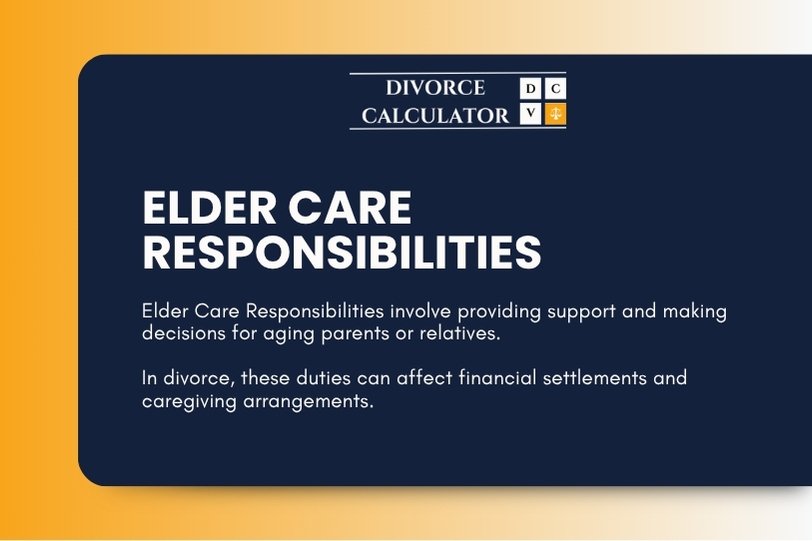Caring for aging loved ones requires us to balance practical tasks, emotional support, and medical needs. As families, we face important decisions about daily routines, housing, finances, legal matters, and navigating healthcare systems. These choices can become overwhelming if we are not prepared or do not share the responsibilities.
We should recognize which aspects of elder care we can handle ourselves and which require outside assistance. Clear communication and dividing responsibilities allow us to meet our relatives’ needs without compromising our own well-being.
By understanding the core responsibilities involved, we can create a smoother, more sustainable support system for everyone involved.
Key Takeaways
Caring for our elderly loved ones involves a range of daily tasks, decision making, and emotional support. We must balance their physical, social, and medical needs with our own commitments.
- Communication: Regular conversations with healthcare providers help us stay informed about our loved one’s conditions and care plans.
- Support Networks: Relying on family, friends, and community resources prevents burnout and improves care quality.
Legal and financial planning is an essential aspect. We should review documents such as wills, powers of attorney, and insurance papers to ensure readiness.
| Key Area | Actions |
|---|---|
| Health management | Schedule checkups, manage medicine |
| Safety | Prevent falls, ensure safe mobility |
| Emotional support | Foster connection, encourage hobbies |
We must also be aware of signs of caregiver stress. Taking breaks and seeking help when needed is crucial for maintaining our well-being.
Creating a routine that includes both care activities and personal time makes these responsibilities more manageable for us in the long term.

Why Elder Care Responsibilities Matter In Divorce
Elder care responsibilities play a significant role during divorce discussions. When we’re dividing assets, debts, and responsibilities, the care of aging parents often comes up.
If one of us has been the primary caregiver, this can affect decisions about housing arrangements, financial support, and even child custody. The time and resources spent on elder care may shift how we approach spousal support.
Key considerations include:
- Financial Obligations: Elder care can involve considerable costs for medical, daily living, and transportation needs.
- Time Commitment: Caregiving often requires flexibility in work schedules and daily routines.
- Living Arrangements: Decisions about whether an elderly parent lives with us can influence who stays in the family home.
In some cases, courts may factor in these responsibilities when making rulings. For example, if one spouse takes on more elder care duties, that may impact alimony or support arrangements.
We should be mindful of how dividing these responsibilities affects our overall well-being and legal agreements. Elder care obligations are an important aspect that needs careful attention during divorce proceedings.
Real-Life Examples
When caring for our aging parents, we often need to coordinate medical appointments and transportation. For instance, one of us may take time off work to escort a parent to a specialist while another manages prescription refills and insurance paperwork.
We might also share daily caregiving duties among siblings. One example:
- Morning: One family member assists with breakfast and medications.
- Afternoon: Another handles housekeeping and meals.
- Evening: A third person checks in virtually to provide companionship.
Sometimes, our roles extend beyond direct care. For example, one of us may act as the financial power of attorney, responsibly managing bills and accounts, while another handles decisions about long-term living arrangements.
Consider this table illustrating how we might divide tasks:
| Task | Responsible Person |
|---|---|
| Medication management | Oldest sibling |
| Legal and financial issues | Youngest sibling |
| Transportation | Middle sibling |
| Grocery shopping | Grandchild |
By working together, we can ensure that each area of elder care receives appropriate attention and support, making the process more manageable for the entire family.
How States Handle Elder Care Responsibilities
Elder care requirements and services vary by state, influenced by distinct laws, budgets, and support systems. We see significant differences in Medicaid coverage, available caregiver programs, and mandatory family obligations.
New York
In New York, elder care is regulated under a combination of state and local social services laws. We find one of the widest selections of home and community-based services, including the Expanded In-home Services for the Elderly Program (EISEP), which offers case management, home care, and respite for family caregivers.
Medicaid in New York covers long-term care and has a “waiver” program allowing elders to receive care at home instead of institutions. Financial eligibility rules are strict.
New York does not enforce filial responsibility laws, so adult children are generally not legally required to pay for a parent’s care. However, the state oversees Adult Protective Services (APS) and has specific reporting mandates for elder abuse.
California
California manages elder care through multiple coordinated programs, including In-Home Supportive Services (IHSS). IHSS allows elderly residents who qualify to receive personal care in their homes, often provided by friends or family paid through state funds.
Medicaid, referred to as Medi-Cal, expands access to skilled nursing facilities and subsidized long-term care. Eligibility for public assistance is determined by both income and needs assessments.
There is no filial responsibility law enforcement in California. Reporting elder abuse is mandatory for certain professionals, and the state supports Area Agencies on Aging (AAAs) to coordinate resources and caregiver support.
Texas
In Texas, the Department of Health and Human Services oversees elderly care programs. Medicaid waivers offer support for home and community-based care, but with limited spaces and waiting lists often present.
Texas also has a “filial responsibility” statute on the books, but it is rarely enforced. Instead, the state relies on a network of local Aging and Disability Resource Centers (ADRCs) that guide families to both public and private aid programs.
Family caregivers may access some state-sponsored training and respite services, but most long-term care is paid privately or through federal entitlement programs.
Florida
Florida is known for its significant retiree population and has comprehensive senior support programs. We can access services like the Community Care for the Elderly (CCE) program, which offers personal care, day services, and case management for those at risk of nursing home placement.
The state’s Medicaid Managed Long-Term Care Program helps cover the cost of nursing homes and some in-home care, subject to eligibility requirements.
Florida imposes no filial responsibility law, so family members are not legally accountable for parents’ unpaid care-related debts. Adult Protective Services respond to abuse or neglect, and there is a statewide Elder Helpline for information and referral.
Tips If You’re Dealing With Elder Care Responsibilities
Balancing elder care with other daily duties can be demanding. We should approach these responsibilities with careful planning and patience.
Communication is key. We need to maintain open discussions with our loved ones about their needs and preferences. This helps us understand what support is required and allows elders to feel involved in decisions.
Let’s consider creating a care schedule. Using a simple table can help organize tasks:
| Day | Task | Person Responsible |
|---|---|---|
| Monday | Medication Check | Us |
| Tuesday | Grocery Shopping | Family Member |
| Wednesday | Doctor Appointment | Us |
We can also reach out for support. Connecting with local resources—such as senior centers or caregiver support groups—can provide valuable information and relief.
It’s crucial to take care of ourselves, too. Scheduling short breaks or sharing responsibilities helps reduce stress and prevents burnout.
Keeping important documents organized makes emergencies easier to manage. We should store medical records, contact lists, and insurance information in an accessible place.
When possible, we should use technology to assist us. Medication reminders, calendar alerts, and video calls can improve communication and daily care routines.
Frequently Asked Questions
We navigate responsibilities that span from daily living assistance to medical support. Our roles often require clear understanding of expectations and adherence to ethical caregiving guidelines.
What are the primary duties of an in-home caregiver?
In-home caregivers support clients with daily activities such as bathing, dressing, and grooming. We also assist with meal preparation and medication reminders. Light housekeeping and companionship are essential parts of our routine.
What specific roles does a caregiver play in a patient’s care?
We help monitor clients’ physical and emotional health, reporting any changes to healthcare professionals or family members. Our role may include arranging appointments and contributing to rehabilitation exercises. We also offer emotional support to improve overall well-being.
What are the core responsibilities included in a caregiver’s job description?
Our responsibilities typically include personal care, assistance with mobility, and maintaining a safe living environment. We facilitate communication between clients and healthcare providers. Documentation of care provided and adherence to care plans are also required.
What principles guide the provision of care for the elderly?
We prioritize respect, dignity, and individual autonomy in our caregiving. Confidentiality and cultural sensitivity guide our decision-making. Safety and holistic support are fundamental to our approach.
Who is typically responsible for providing elderly care?
Family members often act as primary caregivers, while professional caregivers and healthcare workers supplement or provide full-time care when families are unable. Community organizations may also play a role. In some cases, care facilities assume the main responsibility.
What variety of caregiver roles exist within healthcare settings?
We see registered nurses, nursing assistants, and personal care aides serving in hospitals and care facilities. Each role comes with specific tasks, such as administering medication, assisting with daily living, or conducting basic medical procedures. Specialized caregivers, like hospice workers, focus on end-of-life support.



